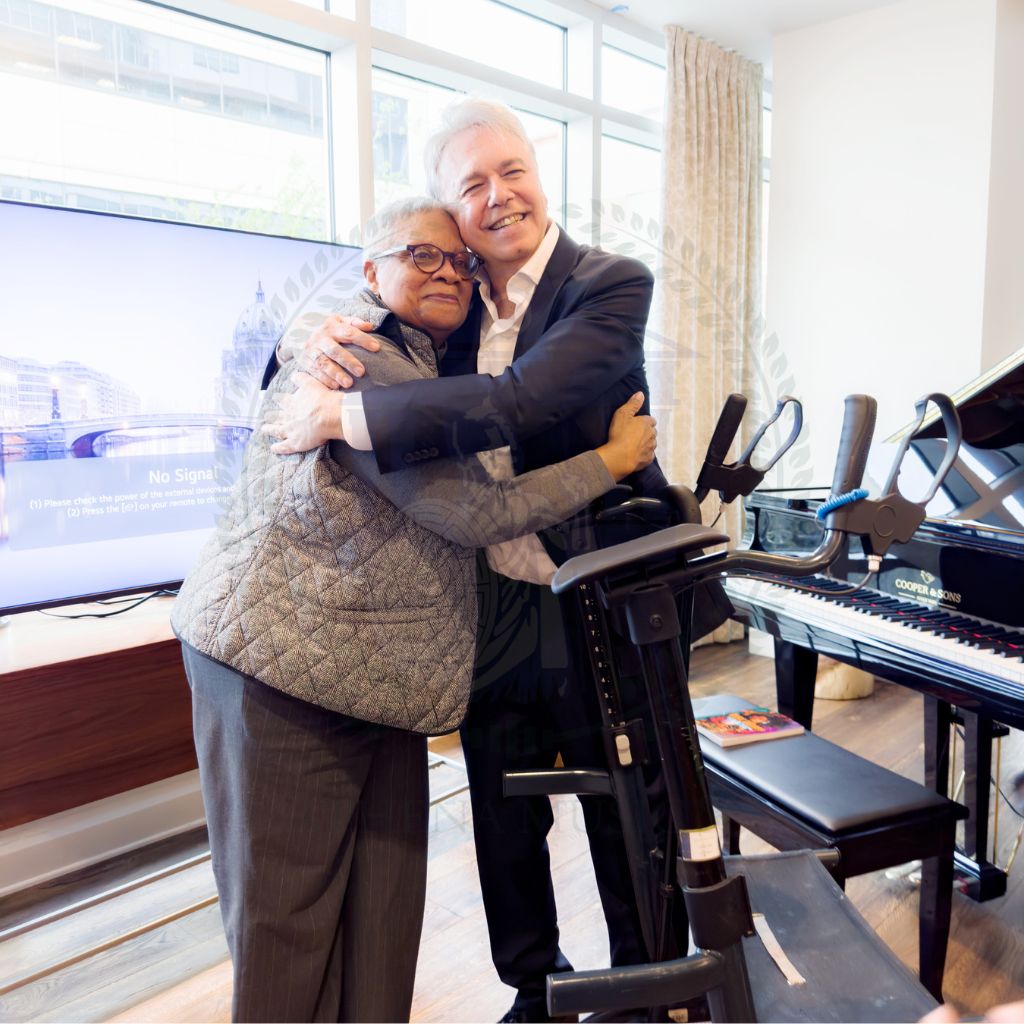The intersection of music, wellness, and aging is viewed as a cohesive entity that not only mirrors and resonates with our existence but also delves into the transcendent concepts that shape and guide us on life’s journey. Ultimately, we are propelled towards a celebration of our lives and the lives of others, acknowledging the interconnectedness within a broader universe that surpasses our limited perception. We are a life in song.
The overture begins even before birth, with themes and variations playing throughout our lives. We intertwine with others as they share their life songs, tell their stories, and sing of others. Music becomes an expression of our individual and collective experiences, manifesting our culture, community, personal aspirations, dreams, and failures.
Contemplating how we navigate the highs and lows, triumphs and tragedies, growth, decline, and disability within the context of music, health, and the aging experience, music becomes a depiction of the most fundamental aspects of who we are. It provides a pathway to overcome the paradox of health and aging, leading us towards true self-actualization.


Science-based music therapy proves to be a potent form of expressive therapy profoundly beneficial for seniors in various aspects of their lives. Using music as a tool for psycho-social support, our team of board-certified music therapy specialists combines mental health counseling expertise with formal training in various musical modalities, including singing, piano, viola, percussion, and guitar, effectively engaging seniors during therapy sessions.
Incorporating Music Wellness Therapy programs for seniors and wellness training for caregivers not only elevates the senior/aging living experience but also enhances the brand’s impact initiative. It signifies a commitment to wellness and well-being, reinforcing senior living’s reputation as a caring and forward-thinking provider.
Music therapy aims to enhance the emotional well-being of individuals, promoting relaxation and increased energy levels. It holds the power to elicit positive responses and enhance communication, even in seniors experiencing advanced stages of dementia with limited verbal skills.
Music has the ability to evoke memories and emotions, providing pleasure, stress relief, and fostering social connections. Serving as a powerful tool to access and communicate information and memories, it promotes neuroplasticity within the brain.
Music therapy plays a pivotal role in memory care by offering non-linear, joyful, and emotionally engaging experiences. It supports the maintenance of cognitive and emotional abilities, ultimately enhancing the quality of life for seniors facing age-related discomfort.